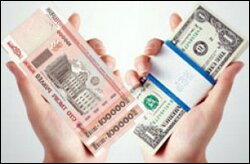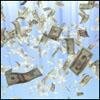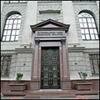Другие материалы рубрики «English»
-
 Human rights groups condemn European Olympic Committees for “sportswashing” human rights abuses in Azerbaijan
Human rights groups condemn European Olympic Committees for “sportswashing” human rights abuses in Azerbaijan
The coalition also condemns EOC President Patrick Hickey for praising the Azerbaijani leader, Ilham Aliyev. -
 Kobryn-based opposition activist Ales Mekh launches presidential bid
Kobryn-based opposition activist Ales Mekh launches presidential bid
Apart from Mr. Mekh, six persons have already announced their intention to run in this year’s presidential election...
- Quarter of adult Belarusians are smokers, official statisticians say
- Experts draw up media reform “roadmap” in framework of Reforum projec
- Leader of Belarusian Popular Front skeptical about new Nyaklyayew-led movement
- Authorities have no plans for liberalization, Belarusian Popular Front leader says
- Second session of pro-independence congress expected to be held in Minsk on June 7
- Rescuers stage massive exercise at sports center in Minsk
- Revelers in Minsk celebrate end of Butter Week
- Leaders of France, Germany, Russia, Ukraine arrive in Minsk for summit on Ukraine crisis
- United Kingdom’s Visa Application Center in Minsk moves into permanent office
- Minsk residents paying tribute to victims of Charlie Hebdo massacre in Paris
English
National Bank pledges “minimal” role in exchange rate determination
The Belarusian rubel’s exchange rate will be determined this year by the market forces of supply and demand with “minimal” involvement from the National Bank of Belarus (NBB), which will use currency interventions exclusively to prevent sharp exchange rate fluctuations, the NBB said in a statement on January 5.
 The National Bank said that this year it would continue the exchange rate policy that it conducted in 2012.
The National Bank said that this year it would continue the exchange rate policy that it conducted in 2012.
The Belarusian rubel falls against a major hard currency when the demand for the currency exceeds the supply at a trading session at Belarus’ currency and stock exchange, and vice versa, the NBB said.
The statement said that the rubel’s stable exchange rate this year would depend on the country’s economic performance.
The statement appeared to be a response to rumors of the rubel’s fresh devaluation that were spread with the help of fake text messages on January 4.
About a thousand people received a text message allegedly sent from an NBB phone. The message said that NBB Chair Nadzeya Yermakova had ordered the rubel’s devaluation from 8,630 to 14,340 against the dollar and from 11,270 to 18,116 against the euro on January 8.
The NBB dismissed the rumors as a provocation and “utter rubbish.”
Prominent Belarusian economists expressed doubt in an interview with BelaPAN on Friday that the authorities would be able to keep the Belarusian rubel from dropping below 8,950 against the US dollar in 2013.
"In my opinion, the rubel exchange rate target for this year is unrealistic," said Stanislaw Bahdankevich, who served as head of the National Bank of Belarus between 1991 and 1995. "I think that the exchange rate will change gradually, and that one dollar will buy more than 10,000 rubels by the end of the year."
Heorhiy Hryts, deputy chairman of the Belarusian Scientific and Industrial Association, echoed Dr. Bahdankevich`s remarks.
The government is unlikely to meet the exchange rate target for this year, Mr. Hryts said. The main reason is that Belarus` deficit in foreign trade in goods and services will probably continue to increase and reach $1 billion or $2 billion this year, he said.
If the government does not use its gold and foreign exchange reserves to prop up the rubel, it will fall below 10,000 against the US dollar in the first quarter, Mr. Hryts predicted. However, even by digging deep into their pockets, the authorities will not be able to stave off the drop for more than six months, he said.
The Belarusian rubel lost 17 percent of its value against the US dollar as a result of a devaluation in January 2009. The rubel was devalued by 36 percent against the dollar in May 2011 and by 34.3 percent in October 2011. Both Alyaksandr Lukashenka and Pyotr Prakapovich, then head of the National Bank, had repeatedly dismissed rumors of forthcoming devaluations as completely unfounded.
The 2012 Monetary Policy Guidelines projected the exchange rate of the Belarusian rubel to be 9,150 against the dollar at the end of the year.




В настоящее время комментариев к этому материалу нет.
Вы можете стать первым, разместив свой комментарий в форме слева